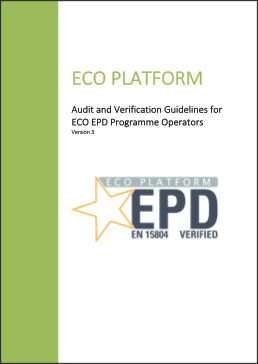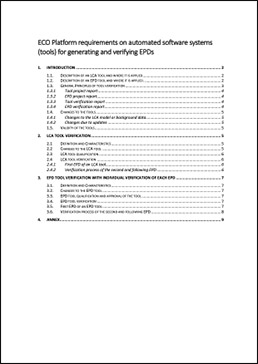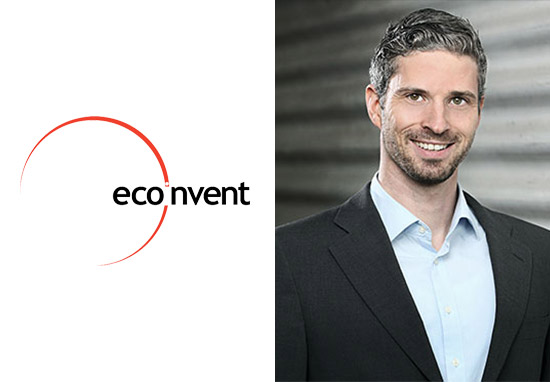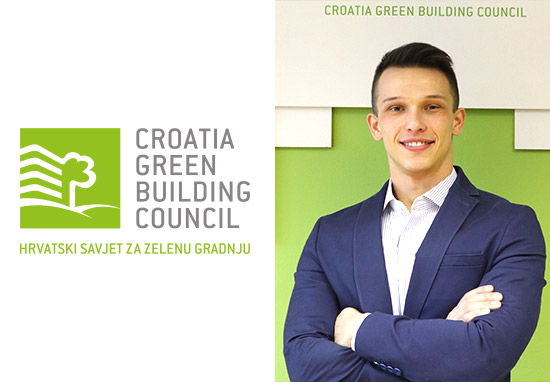ECO Newsletter archive
ECO Platform - Newsletter March 2021
|
|
||
|
|
Dear Reader, In this and the coming newsletters we would like to put the focus on our current activities. Some of the issues we are involved in are quite complex. For a good understanding of the single initiatives, we give some comprehensive descriptions of the circumstances, the objectives, the involved parties and the status of the work. Jane Anderson wrote an article on the digitisation of the ECO EPD supported by Oliver Kusche, which you find below the welcome words. It provides an excellent overview on the various related issues and activities, including the ISO 22057 works on EPD in BIM. ECO Platform offers all their members to join the Technical Working Group (TEWOG) to be part of our core of technical expertise. You find a report on the ongoing activities and latest achievements of our TEWOG below. With our ECO Portal, our ECO EPD become accessible via a single access point. We are about to start the pilot phase for API connections. Please contact us if you are interested in connecting your Construction LCA Tool to our ECO Portal. We are in preparation of regular webinars providing important updates on relevant developments. Some of our webinars will be public, some for members only. Please share your opinion with us for choosing the issues of highest interest. We prepared a survey for you. Please follow the link and vote for the subjects that are of your biggest concern. (Link to survey) Possible webinar issues we are proposing:
Of course we are welcoming your further proposals on issues of common concern at any time. You can use the survey for your input. Please visit our homepage regularly in the coming weeks or follow us on LinkedIn for updates and registration. Last, for sure not least, you find a short introduction of our new members below. All of them are already in close contact and integrated into our projects. We are welcoming them with open arms! We hope to see many of you soon in our next activities, |
 Sven-Olof Ryding Sven-Olof RydingPresident |
|
 Christian Donath Christian DonathManaging Director |
Digitisation of ECO EPDby Jane Anderson and Oliver Kusche
As you may have seen from the new link on the ECO Platform website, https://www.eco-platform.org/epd-facts-figures.html, EPD according to EN 15804 have hit the 10,000 mark at the start of 2021, nearly 8,000 of which are from ECO Platform members. There has also been great progress in the digitalisation of EPD. The ECO Platform ECO Portal included over 2,000 EPD at the start of 2021, meaning over 25% of Platform members’ EPD are now included in the ECO Portal, which uses the InData ILCD+EPD format. Taking on board other digitalisation efforts, nearly 5,000 ECO Platform member EPDs have been digitised.
Figure 1 development of EPD acc. to EN 15804 (source: Construction LCA Ltd.)
So how do we expect these digital EPD and the ECO Portal itself could be used?
Digitisation and Digitalisation According to Gartner’s IT Glossary, “Digitisation is the process of changing from analog to digital form” and making the data accessible for use in tools. Digitalisation does not have such a clear definition, but is generally considered to be the process of using digitised information and technology to generate value or to improve a system. Although an EPD available as a PDF document may appear digital in a way, we are really talking about digitising EPD so they are available in a machine readable format, making the data accessible for use in tools. This not only includes the digitisation of the EPD, but the digitalization of the processes through which EPD are created. In terms of digitalisation, we are talking about fully integrating and applying digital EPD in Building Information Modelling (BIM) and building assessment, for example through the use of APIs to find and select EPD and the use of parameterised information from digital EPD.
ISO DIS 22057 It is with this process of digitalisation in mind that ISO DIS 22057 has been developed. Originally known affectionately as EPD for BIM in the ISO working group tasked with working on it, which reflected the original consensus among the community to develop an implementation neutral standard, the original scope was later changed. In its current form, ISO DIS 22057 strongly focuses on the “product data template” approach that has been developed within EN ISO 23387:2020 and the concept of Data Dictionaries provided in EN ISO 23386:2020. Both of these standards are part of the BIM standards covered by EN ISO 19650, EN ISO 12006-3:2016, and EN ISO 16739-1:2020. The work on ISO DIS 22057 has been done in liaison with ISO/TC 59/SC 13 (Organization and digitization of information about buildings and civil engineering works, including building information modelling (BIM)). Strongly tying the standard to the product data template approach has been opposed by representatives from France, Germany and Sweden, who advocated an implementation neutral standard, but were later overruled. Examples of the additional types of digital information which ISO 22057 is intended to provide are given below:
ISO DIS 22057:2021 is currently out for its first enquiry until 8th April 2021. It is covered by the Vienna Agreement, so although ISO TC59 SC17 WG3 are developing the standard, CEN TC350 WG3 are also following the work and CEN members can also comment. Please contact your National Standards Body if you would like to review the draft standard and comment.
How to deal with increasing numbers of EPD using Digitalisation Whilst 10,000 EN 15804 EPD is an amazing milestone, and although most EPD cover one product, there are some EPD which provide individual results for many individual products, so there are many more products with environmental data to EN 15804 than 10,000. However there are problems that come with the increasing number of EPD. When you search for EPD and find 3 or 4, then it is relatively easy to review them and check the products covered and their impacts. When you find 30 or 40, it becomes a significant chore, and if you find 300 or 400, then it is impossible without digitalisation. In North America, the use of EPD tools using ISO 21930 in the concrete industry, such as those provided by GCCA and Climate Earth and a digitalised platform called EC3, have out-scaled our efforts with EN 15804. At the start of the 2021, there was digital EPD data using for over 35,000 concretes available, covering over 50 companies and nearly 400 plants. (There is also digital data from both ISO 21930 and EN 15804 EPD for just over 1000 other products available on EC3). The free EC3 tool was initiated by the Carbon Leadership Forum in the US and has been developed by a not-for-profit called Building Transparency. EC3 provides both a Building level Embodied Carbon tool (user entered building data) and an EPD search facility which can be accessed via the Building level tool, or independently. The tool uses its own “OpenEPD” format which is particularly strong in the way it digitises location information (for each individual plant) and in providing technical data for product groups, both of which can then be used in search queries. For concrete, as shown in the figure below, EC3 allows you to search for concrete products with EPD which have particular compressive strengths or that are made in particular US states or Canadian regions. You can even, within the EC3 building tool, search for products with EPD manufactured within a given distance of your site. And as a final example of how digitalisation can work, you can search for products which meet a particular carbon intensity impact, taking into account the likely difference in variance for product specific, site specific, manufacturer specific and industry specific EPD.
Figure 2 EPD search function (for concrete) in EC3
TEWOG efforts: New guidance documents on ECO Platform websiteby Eva Schmincke New Verification Checklists for EN 15804 A2 available ECO Platform’s TEWOG (technical working group) has updated the checklist for verification and thereby harmonized the verification process among European Program operators in the field of sustainable construction up to a common quality level again. The new checklist in the document “ECO Platform Guidance Paper Verification including EN 15804+A2-vs Feb 2021” includes all items to be considered during verification for EN 15804+A1 and for EN 15804+A2. Program operators are free to follow this example. If they wish, they can also have two different checklists, one for A1, one for A2. The checklist includes new text for the “content of EPD” i.e. the additional issues that need to be included in an EPD for 15804+A2 as best practice example for the EPD. This standard was ratified by CEN October 2019. Both standards co-exist for 3 years and it can be expected that the A1 standard will be withdrawn by end of 2022. The new standard EN 15942 on Business to Business Communication will be out soon and identifies all issues to be declared and in which order. The common format for digital EPD, ILCD+EPD, has been developed by the InData Project (See Newsletter October 2020)
Tool Verification The other document “Requirements on automated software systems vers. Feb 2021” is for now published as separate document, but it will become part of the Guidance Paper. This document deals with tool verification and provides the rules for verifying LCA tools and EPD tools with individual verification by each EPD. The LCA tool uses an LCA model which is parameterized for the bill of materials, allowing the user of the tool - who often is the owner of the resulting EPD - to modify a pre-defined selection of input data in order to produce a specific EPD. When the tool is verified all EPD created with this tool can be verified by a simplified procedure. An EPD tool works by the same concept, except that pre-calculated product components can be used via a pull-down menu to create the EPD. Again, when the tool is verified, a simplified procedure for the EPD verification is possible. (see also LCA tools in Newsletter October 2020)
Green Electricity TEWOG is searching for a common handling of green electricity. Correct calculations of green electricity have become a major concern when companies are trying to communicate a legitimate reduction of their GHG emissions or even carbon neutrality. Guarantees of origin (GoOs) and a registry of green electricity “products” are a milestone, and so is the well accepted carbon footprint standard ISO 14067. However, there are still questions open.
Digital Format Digitalisation of EPD is also an ongoing task. The TEWOG works together with the InData project. The InData project has developed a format for EPD data that is compliant with ILCD and all InData members have committed to use this format. TEWOG’s task is to support InData with technical advice.
New MembersECO Platform is proud to present our latest new members. And more to be presented in the next issue of the newsletter. Be curious...
ok worx - Oliver Kusche
Oliver Kusche is an expert in IT solutions with extensive experience in LCA and data exchange. His expertise includes supporting organizations to successfully put digitalization into practice. Within the InData Working Group he has developed and implemented the concept of an international data network together with leading program operators. He has joined ECO Platform to help shape the transformation process and to use his expertise to further help mainstreaming building LCA. We are happily welcoming Oliver Kusche in ECO Platform. Oliver is connected to ECO Platform already for a long while. ok worx recently supported us with implementing our ECO Portal and will contribute to the further development of our digitalization as a member and with ok worx.
PRé - Eric Mieras
Eric Mieras is the Managing Director of PRé. His ambition is to make footprints, such as EPDs, as normal as a price tag. He believes that this can be achieved through combining state of the art technology and the best available science-based knowledge. PRé Sustainability helps companies turn sustainability strategy into action, through fact-based consulting services, training and software solutions based on life cycle thinking. Their team is dedicated to making a positive change in the world by developing long-term solutions that help creating value and driving sustainable change. ECO platform plays a key role in that development aiming for developing and providing credible and scientifically correct data from products. With PRé we won a partner capable and willing to contribute to our goals by sharing their knowledge and experience along the entire chain of data, from conducting LCA to the use of EPD data in tools. Welcome PRé! https://pre-sustainability.com/
Digital Disclosures - William Paddock
William Paddock is a seasoned expert in applied life cycle assessment including Scope 3 accounting, Embodied Carbon Accounting and Environmental Product Declarations. He is a Co-Author on the WRI's Scope 3 Product Level Accounting Sector Supplement, "Methodology for Measuring Embodied Carbon in the Built Environment". He is the Managing Director for WAP Sustainability Consulting, a leading Life Cycle Assessment firm based in Chattanooga Tennessee. He also serves on the Board of the Carbon Leadership Forum and is a member / past Chair of the USGBC Materials and Resource Technical Advisory Group. As a Co-Founder of Digital Disclosures, William helped establish Digital Disclosures as a Digital EPD Verifier. Digital Disclosures role in the Digital EPD ecosystem is to help create the global OpenEPD format, provide digitization support to manufacturers, program operators and LCA providers, and also maintain quality assurance methods for digital EPD records under its 'Verified by Digital Disclosures' program. We are proud to welcome Digital Disclosures as new member at ECO Platform. With Digital Disclosures we are reaching out to America for aligning and harmonizing EPD globally.
ecoinvent - Gregor Wernet
With ecoinvent we are welcoming the organization behind one of the most relevant LCA databases. Gregor Wernet leads the organisation as Managing Director and oversees the management of ecoinvent. Gregor has been involved with ecoinvent since 2005, first as a member of the Expert Group, later as an International Project Coordinator, and as the Executive Director since 2012. He is also the editor for chemicals and pharmaceuticals. Originally hailing from Germany, he has a PhD in Chemistry from ETH Zurich. ecoinvent directly got involved into relevant work and is contributing to preparing the pilot phase for API connections to our ECO Portal. ECO Platform is grateful for the immediate support and one of our most essential ongoing projects and welcomes ecoinvent happy and with open arms.
Croatia GBC - Benjamin Petrovic
With Croatia GBC we are welcoming another Green Building Council amongst us. Benjamin Petrovic is representing Croatia GBC at ECO Platform and is in close contact with us already for a longer time. Not only is Croatia GBC interested in establishing an own EPD Programme, but they are playing an active role in LIFE Level(s) and the #BuildingLife campaign. Benjamin reported about the LIFE Level(s) project in one of our last newsletters. LIFE Level(s) project and #BuildingLife campaign are currently looking towards mainstreaming whole life carbon thinking and sustainable buildings across the industry and policymaking processes. Together with Croatia GBC we are envisioning some projects connecting our EPD approach closely to LEVEL(s). We are looking forward to a fruitful cooperation in the coming years.
|
| ECO Platform AISBL |
||||||
|
Boulevard du Souverain 68, |
|
phone: +49 201 - 3203172 |
||||
|
If you no longer wish to receive our newsletter, please click here.
|
||||||










